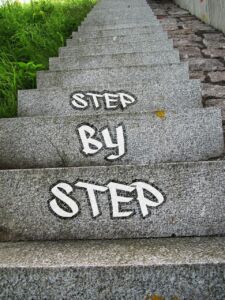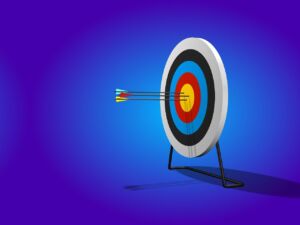You may have heard about Attention Deficit Hyperactivity Disorder (ADHD) in the past regarding children, but were you aware that adults can also live with this mental condition? Many children with ADHD eventually outgrow it, but about 60% of individuals still have adult ADHD.
Symptoms of adult ADHD
Do you often question why you struggle with a short attention span, listening to others, or impatience? These are some common symptoms of adult ADHD:
Fidgeting and an inability to sit still
Hyperactivity is a core component of ADHD, although someone can have the condition without restlessness. As a child, your teachers may have told your parents that you were always on the move or could not sit still. Plano Christian Counseling offers faith-based guidance and support to help individuals and families navigate the challenges of ADHD with understanding and practical strategies.
Impulsiveness
Impulsiveness and risky behaviors, such as driving recklessly, speeding, and having one-night stands, are symptoms that can lead to broken relationships and trouble with the law.
Interrupting others
Interrupting others and being unable to wait your turn are hallmarks of ADHD in adults. For example, you may have trouble waiting patiently in line at the grocery store or doctor’s office. In addition, you may become belligerent if you feel that others are being seen first.
Racing thoughts
Your thoughts may jump from one subject to the next rapidly, and people might complain that you talk too fast. This is one of the reasons you interrupt others; you want to voice your thoughts before you lose them to another topic.
Starting projects and not completing them
Your parents, spouse, or boss might complain about you starting projects only to abandon them at the halfway point. You may lose interest or become distracted by a new project.
 Inability to focus and concentrate
Inability to focus and concentrate
As your mind skips around from topic to topic, you will find it is harder to focus on tasks. Multitasking is challenging for you, so you should work on tasks one at a time.
Forgetfulness
Do not be alarmed if you always forget your keys, wallet, or sunglasses. Forgetfulness is common with ADHD in adults, as your mind can get distracted easily. When this happens, your brain does not fully process what you are doing, such as placing your keys in a drawer or leaving your sunglasses in the car.
Short attention span
Attention span should increase with age. However, for adults with ADHD, the inability to concentrate and focus due to distractions is greater. For example, one study reported that 43% of office workers stop reading long emails after just 30 seconds.
Anxiety
Although you can develop anxiety without having ADHD, anxiety is often a byproduct of the condition. The other symptoms, such as forgetfulness, impulsiveness, and risky behaviors, can create anxious thoughts and worries.
Depression
Depression can also manifest as a result of impulsive behaviors or broken relationships, just like anxiety. For example, if you are rash in your decision-making, you may make hurtful comments or react in a harmful manner toward others. The consequences can trigger depression.
Mood swings
Impulsive behaviors and emotions can lead to mood swings. You may get angrier quicker than others or suddenly cry for no reason. Your feelings are heightened, and you feel every one of them.
Sleep problems
Sleep disorders and sleep issues are common with ADHD. You may wake up several times a night, unable to fall asleep. Falling asleep may be challenging, especially if you have racing thoughts at night. It may seem like you cannot turn your mind off to sleep. You might struggle to stay awake in the morning at work, but catch your second wind by evening and probably do your best work on the second shift.
 Unfortunately, these symptoms can make others think you do not care about your job or relationships. Supervisors and spouses may believe that you are not invested. People you consider potential friends may feel that you do not value their opinions because you interrupt or change subjects during conversations.
Unfortunately, these symptoms can make others think you do not care about your job or relationships. Supervisors and spouses may believe that you are not invested. People you consider potential friends may feel that you do not value their opinions because you interrupt or change subjects during conversations.
You may only experience a few symptoms of ADHD in adults or feel like you embody the list. The severity of symptoms can vary between people.
Treatment for adult ADHD
Adult ADHD is manageable. Psychotherapy can teach you to slow your reaction times and impulsive behaviors. A counselor can help you identify thoughts and emotions and increase your attention span. Your counselor might recommend talk therapy in individual or group sessions. Couples and family therapy are also available if you believe that your ADHD is interfering with those relationships.
Cognitive Behavioral Therapy (CBT) is a form of short-term psychotherapy that teaches adults with ADHD to identify negative thoughts and change the emotions associated with those thoughts. For example, if you tell yourself, “I don’t know why I volunteered for this project at work. I’ll just abandon it. I never complete anything,” you will probably feel depressed and frustrated. But with CBT, you will change those thoughts and ask yourself to reveal the truth.
For this example, if you used to abandon projects in the past, that was in the past. You choose to complete this project to become indispensable to the company and get that next promotion. Now, you feel a sense of pride and accomplishment as you work toward the goal of getting that promotion.
Not only can a counselor help you with talk therapy and CBT, but most professionals offer personal and professional development to adults with ADHD to help them manage their symptoms and the condition at home and work.
What you can do to ease symptoms
Aside from counseling, you need to make changes in your life to ease ADHD. Since most adults with ADHD deal with forgetfulness and distractions, learning to get organized will help immensely at home and work. For example, setting an alarm on your phone to remind you to clean off your desk at the end of the workday, empty the dryer, or lock the house up at bedtime.
A nightly routine can be one of the most helpful parts of your day. This is when you should lay out your outfit for the next day, pack your lunch, set out your breakfast, and anything else that needs to go with you to work, including your wallet and keys. Preparing for the next day makes you less likely to forget anything.
 Exercise is a great way to lower your anxiety and depression while increasing your concentration. Working out forces oxygen-rich blood into the brain, and releases endorphins that lift your spirits. If you work out in the morning, you are in a better mood all day and can focus on tasks.
Exercise is a great way to lower your anxiety and depression while increasing your concentration. Working out forces oxygen-rich blood into the brain, and releases endorphins that lift your spirits. If you work out in the morning, you are in a better mood all day and can focus on tasks.
Choose activities that fit your personality and that you will do consistently. Try engaging in activities such as walking, running, swimming, dancing, weight training, Pilates, yoga, cycling, or other sports. You can do any activity that gets your heart pumping three to five days a week.
Sleep disturbances are common with ADHD, but you can prepare for bedtime during your nightly routine. For example, avoid exercising and eating a meal less than three hours before bed. Winding down with a cup of herbal tea and reading that does not require a device, can allow you to relax. Avoid screen time, as the blue light emitted from screens can keep you awake.
You can also listen to music, journal, or read a book to calm your mind before bed. If you are used to going to bed late, start moving your bedtime back a little at a time. For example, if you are used to going to bed at 11:00 PM, try 10:45 PM for a few nights, and then move it back to 10:30 PM.
Do you need help with ADHD?
 ADHD in adults affects around eight million people in the United States annually. You are not alone if you are experiencing symptoms. Contact Plano Christian Counseling today to schedule a session with a Christian counselor specializing in adult Attention Deficit Hyperactivity Disorder. We can help you manage these symptoms by showing compassion towards yourself and finding strategies to become more productive and focused.
ADHD in adults affects around eight million people in the United States annually. You are not alone if you are experiencing symptoms. Contact Plano Christian Counseling today to schedule a session with a Christian counselor specializing in adult Attention Deficit Hyperactivity Disorder. We can help you manage these symptoms by showing compassion towards yourself and finding strategies to become more productive and focused.
“Victory”, Courtesy of Pixabay, Pixabay.com, CC0 License; “Standing on the Rock”, Courtesy of JVAN_COLLECTIVE, Pixabay.com, CC0 License; “Step by Step”, Courtesy of geralt, Pixabay.com, CC0 License; “Bullseye”, Courtesy of QunceCreative, Pixabay.com, CC0 License
-
Bryan Ferguson: Author
I believe that every person is immeasurably valuable, unique, and made in the image of God. Sometimes having a compassionate therapist who will create a safe, nonjudgmental space for you to share your emotional burdens can be the greatest catalyst fo...
Recent Posts
-
Kate Motaung: Curator
Kate Motaung is the Senior Writer, Editor, and Content Manager for a multi-state company. She is the author of several books including Letters to Grief, 101 Prayers for Comfort in Difficult Times, and A Place to Land: A Story of Longing and Belonging...
DISCLAIMER: THIS ARTICLE DOES NOT PROVIDE MEDICAL ADVICE
Articles are intended for informational purposes only and do not constitute medical advice; the content is not intended to be a substitute for professional medical advice, diagnosis, or treatment. All opinions expressed by authors and quoted sources are their own and do not necessarily reflect the opinions of the editors, publishers or editorial boards of Stone Oak Christian Counseling. This website does not recommend or endorse any specific tests, physicians, products, procedures, opinions, or other information that may be mentioned on the Site. Reliance on any information provided by this website is solely at your own risk.






